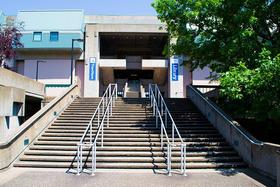Though many people still think that community college is a lesser version of a traditional four-year university, the truth is that your education will be what you make it – it doesn’t really matter where you go to school. In the end, all that really matters is the effort you put into it and how well you take advantage of the opportunities presented to you. If you want to graduate from community college with the best chance for future success, follow these top ten tips when you start attending school.
Why Attend a Community College?
According to the American Association of Community Colleges (AACC), almost half of all undergraduate students in the United States attend community college. Community college appeals to a diverse range of students from recent high school graduates to adults seeking continued education. Many students enjoy the flexibility and affordability of community college as compared to traditional four-year universities, though both options come with their own set of unique challenges. Going to college, in general, is a major life event and the choices you make could influence your future success. Having the right mindset and being proactive about your community college career can help you to get the most out of your education.
This video offers reasons why you should attend community college.
Tips for New Community College Students
Though community college is very different from a traditional four-year university in many ways, in many ways it is very much the same. The choices you make early in your community college career can influence the rest of your life, so take the time to educate and prepare yourself before you set foot on campus for the first time. To help you make your community college education as valuable and successful as possible, keep these top ten tips in mind:
1. Take advantage of financial aid.
The sooner you apply for financial aid, the better. Community college is usually more affordable than traditional four-year colleges, but it can still be expensive. Research independent scholarship options and apply for student loans as well. You’ll want to fill out your FAFSA as early in the year as possible so you can get an idea of how much aid you qualify for.
2. Have some idea where you are headed.
Though community colleges offer a higher degree of flexibility in terms of class schedules and online learning, there is a little less room for error. At a traditional college, you might not be expected to declare a major until the end of your sophomore year and you have the freedom to explore electives as part of your general education requirements. If you want to get through community college quickly, however, you need to start out with some kind of career in mind so you can plan your path to success.
3. Register and schedule classes as soon as possible.
Community college classes fill up fast so, if you want to stay on track with your education timeline, you need to register and sign up for classes as early as possible. There may be more flexibility for online classes, but even those classes have a limit so don’t delay when it comes to registering and picking classes.
4. Buy your books early.
College textbooks are expensive and you may end up paying more if you wait until the last minute to buy them. As soon as you schedule your classes, check the syllabus to see what books you need and find the cheapest place to buy them. You may be able to save a lot of money by purchasing the books online or by buying used copies at the campus bookstore.
5. Don’t skip classes.
Many beginning community college students fail to take their education seriously just because it isn’t a “real” school. The fact is, however, that you are paying for your education, even if you don’t attend class. If you don’t attend class, how will you learn? Depending on the cost of your tuition, skipping a single class could equate to a loss of $50 or more.
6. Get to know your professors.
Professors are generally required to keep office hours where you can come in and talk about assignments. Even if you don’t need help with the homework, stopping in to talk to your professors can help to form a relationship with them. In the future, they may be able to give you career advice or act as a reference when you start applying for jobs.
7. Take advantage of student services.
In addition to getting to know your professors, you should also take advantage of student services like academic advising and career center services. Your academic advisor can help you plan your path through college and the career center can help you prepare for your future after college. When you are getting closer to graduation you’ll want to make use of these services to work on your resume and to practice your interview skills.
This video offers suggestions for doing homework.
8. Make friends with your fellow students.
When it comes time to apply for your first job after college, you may find that it isn’t all about what kind of degree you have – it’s also about who you know. If you form connections in school, you may find that those connections can help you later in life. Don’t underestimate the power of networking!
9. Don’t blow off homework.
Not all learning happens in the classroom – you also have to put in some degree of effort outside of class to master concepts and to practice your skills. As tempting as it may be to blow off a homework assignment in favor of spending time with friends, you need to strike a balance between your academic and your social life.
10. Don’t be afraid to ask for help.
Some people have a knack for learning while others may struggle with it. Attending community college is not necessarily going to be the easier choice – it all depends on the classes you choose. If you find that you are struggling to understand class materials, don’t be afraid to ask for help! Reach out to your professor or to fellow students – you might also see if your college offers a student help center.
Your community college education will be what you make it. If you think of community college as a waste of time or you fail to take your education seriously, you might graduate without being any closer to a career. While you are in school, you need to take advantage of the opportunities available to you and fight for the things you want or need. If you don’t agree with a grade your professor gave you, go talk to him to find out why! If you need a special exception to be able to attend a prerequisite class, talk to the dean of students! No one is going to fight your battles for you, so you need to take yourself and your education seriously from the very beginning.
While community college is sometimes thought of as being “easier” than attending a traditional four-year college, it all depends on the choices you make and the actions you take. By keeping the top ten tips listed above in mind you can start your community college education off right so that you will graduate with the best chance for success.
Questions? Contact us on Facebook. @communitycollegereview















